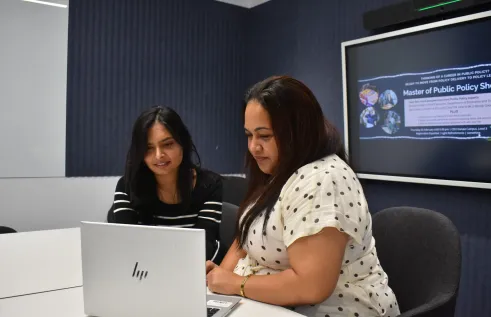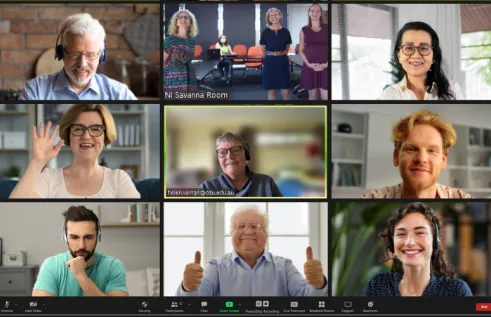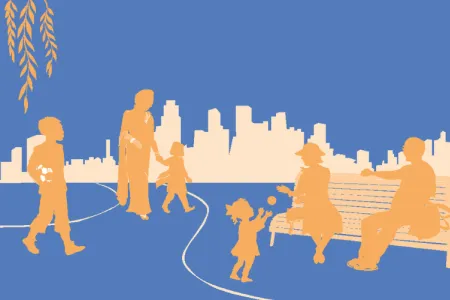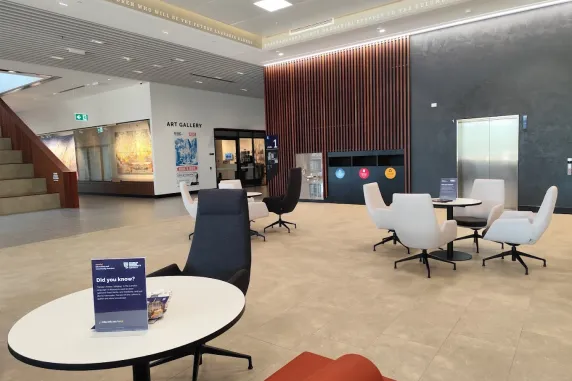Northern Institute
Age-friendly cities and sustainability
| Presenter | Professor Joost Van Hoof | |
|---|---|---|
| Date/Time |
to
|
|
| Contact person |
Northern Institute
|
|
| Location | Room 7, Level 3, Danala Education and Community Precinct | |
| Open to | Public | |
Expanding the discourse of age-friendly cities with perspectives on older people and sustainability.
About
In 2007, the World Health Organisation launched its Age-Friendly Cities and Communities program through its publication Global Age-Friendly Cities: A Guide. This guide has been an influential tool for policy advice, as the WHO Global Network for Age-friendly Cities and Communities currently includes 1705 cities and communities in 60 countries, covering over 330 million people worldwide. Australia has been a key player in the movement from the time of its development. All around the world, cities and communities develop action programmes to improve the age-friendliness of neighbourhoods by implementing plans that later need to be assessed. Until 2020, the model itself had not been psychometrically validated, and it was impossible to actually measure the age-friendliness of cities in a quantitative manner. In the development process of a validated instrument, a research team from The Hague identified further gaps in the model, including technology, financial aspects and sustainability.
Transforming our societies towards a more sustainable future requires a good understanding of older citizens in the light of population ageing and the cost of living crisis. Analysing data collected around Europe, using a novel instrument named the SustainABLE-8, allowed us to identify four major European typologies, and the drivers for and contributions to sustainable practices. These typologies differ in terms of their financial position, beliefs and behaviours in relation to the environment, and require a different approach from local governments when implementing sustainable policies.
This seminar will address the WHO's efforts to create age-friendly cities, the evaluation of these efforts, and the importance of sustainability in shaping age-friendly environments.
Presenter
Professor Joost van Hoof works in the Urban Ageing research team with the Centre of Expertise Governance of Urban Transitions at The Hague University of Applied Sciences (Netherlands). Since December 2017, he is also affiliated as a full professor of Social Sciences, in the field of discipline of socio-economic geography and spatial management, with the Department of Systems Research, Faculty of Spatial Management and Landscape Architecture, Wrocław University of Environmental and Life Sciences (Poland).
His research interests lie in the domain of age-friendly cities, the design of housing and gerontechnology for older people, as well as environmental sustainability. He serves as the chairperson of the Knowledge Platform Age-Friendly The Hague, in which the municipality (member of the Global Network for Age-Friendly Cities and Communities since 2015), older citizens and professional organisations in the field of healthcare and welfare work together in researching the effects of municipal policies.
Professor van Hoof has won various international awards for his participatory research with older people.
Registration
In-person: Please RSVP to attend in person.
Online: Once you register, you will receive an individual link from Zoom no-reply@zoom.us.
Each seminar is recorded and linked to our Seminars page.
Getting there
Room TBC
Room 7, Level 3
Danala Education and Community Precinct
54 Cavenagh Street, Darwin City, NT, 0800
Google Maps Location
Access: If you have any additional access or support requirements, please contact us. Level 1 is street level and has bathrooms, CDU student services and security available on this floor. Please note that there will be directional signs on the event day and that the underground car parking is not available yet so please use the surrounding street parking.
Related Events

Master of Public Policy Showcase
Join Northern Institute for the MPP Showcase during O‑Week in late February to explore what the program offers and take the next step towards leading with purpose.
Read more about Master of Public Policy Showcase
Thesis Talk
Thesis Talk is a facilitated academic discussion for HDR candidates to connect to and through ideas with research peers. Join the monthly online session to explore different topics, theories and practicalities. Talk through the nitty-gritty of research practices and reflect on your work.
Read more about Thesis Talk
Applying a Gene Knockout Approach to Cane Toad Management and Research
Alex Funk, a PhD candidate at Macquarie University, is developing a CRISPR-based gene knockout method to control invasive cane toads in Australia by exploiting their cannibalistic tadpole behavior. His research combines herpetology, invasion biology, and conservation, building on his previous work studying feral pig impacts on salamanders.
Read more about Applying a Gene Knockout Approach to Cane Toad Management and Research


